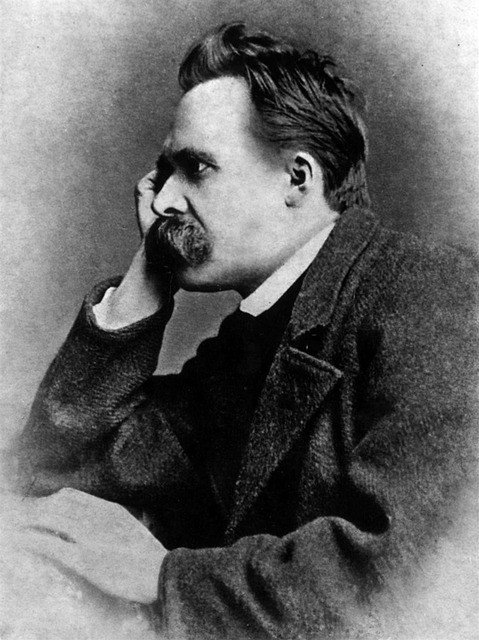"God is dead" Nietzsche

A Time Magazine of 1966 and a series of films that worked hard to come from above the inspirational beliefs, written in 1882's Sen Science, an exciting aphorism of "God is Dead" from Friedrich Nietzsche, who was inspired by skepticism and sin. 2016 created the inevitable statement of the cultural wars of the 20th century inadvertently. Of course, Nietzsche Molotov knew his cocktails at his own time for his cultural wars, but he did not do it just for pleasure. On the contrary, Nietzsche's blunt assertions are a major problem and a necessary understanding.
To be more precise, Nietzsche never said he was a god, but recently he said he was dead. According to Scotty Hendrick, the Great Thought writer was talking about a pre-science god that reminded me of "what is in my mind". The philosopher who was "atheist in adult life" could not find a place in the Christian world after the age of enlightenment: "Europe no longer needs God for morality, value and the order of the universe, philosophy and science have enough capacity for it. a burden may imply philosophy and atonism: the theological thought, in the western philosophy and language, or as Nietzsche writes, "We are afraid that we are not saved from God because we are still grammar."
Nietzsche, a metaphysical naturalist devoted to him, was not easily rescued by the influence of European civilization, especially the bourgeois German, which was frequently attacked, by a strict religious upbringing, which was not affected by the traces of the Christian God. their "God is dead, but like humans, they could have been caves for thousands of years still showing their shadows. - We must defeat his shadow! "God's" Shadow "is inspired by our thoughts about morality. Even in the absence of religion, we hold on to him for fear of quitting religious thought. Why is it worrisome that Nietzsche was inevitable except for widespread and destructive nihilism?
Nietzsche saw that even scientific discourse was influenced by sacred / divine ideas. You say to Science: "Let's pay attention to the fact that there are laws in the field," he writes. Nietzsche understands that readers of "humanity" mean readers of "the opposite of death" without attracting the majority of the human sense of the word "coincidence." Nietzsche understands that the word "coincidence" only makes sense for a purposeful world. - or to lose a belief in love is disastrous.
On the contrary - Nietzsche thought that our belief in God made us "lie, cowardly, obedient creatures," and that we were extremely imprisoned, as the philosopher Simon Critchley was correctly described in the Grand Thought videos. We believe we will continue to do so until we accept our place in the land - a trick that is not easy in the age of divine thinking. Nietzsche thought, "When are we going to leave time and courage?" "When will all these shadows of God no longer darken us, when will we be born without gods, when will we begin to purify mankind with newly discovered, newly saved nature?"
According to Nietzsche, most people will never do this. According to him, "people alone are important," the hero. "In modern times, ordinary people draw their destiny on the road to becoming the" Last Man. "According to Hendricks, this is" a person who lives quietly and comfortably. "Without thinking about personal development" A passive consumer. We can read Nietzsche's philosophy of comprehensive elitism / elitism or the reader's personal heroism call. In either case, the worries sustained over the past 134 years have continued and many people have little relief ... For others, the absence of a supreme existence has had no effect on the psychological health.
For example, according to billions of Taoists and Buddhists, this problem never existed. Nietzsche perhaps had as much of an idea as his contemporaries of Eastern religion, most of his knowledge was sad because of Arthur Schopenhauer's pessimistic stance on Buddhism. "When compared to [Schopenhauer's] worldview," says Peter Abelson, "very serious, Buddhism seems almost joyful." Nietzsche rejected other religious systems in the same seriousness, sometimes controversy, sometimes his mood was taken up by Christianity. But he quoted Buddha and summed up his basic aesthetic value: "Do not let the donors go to the sky! Repeat this in a Christian church and clean up the air of everything that is Christian. "To live without repetition as always, must be completely rescued from slavery and assume its own responsibility.